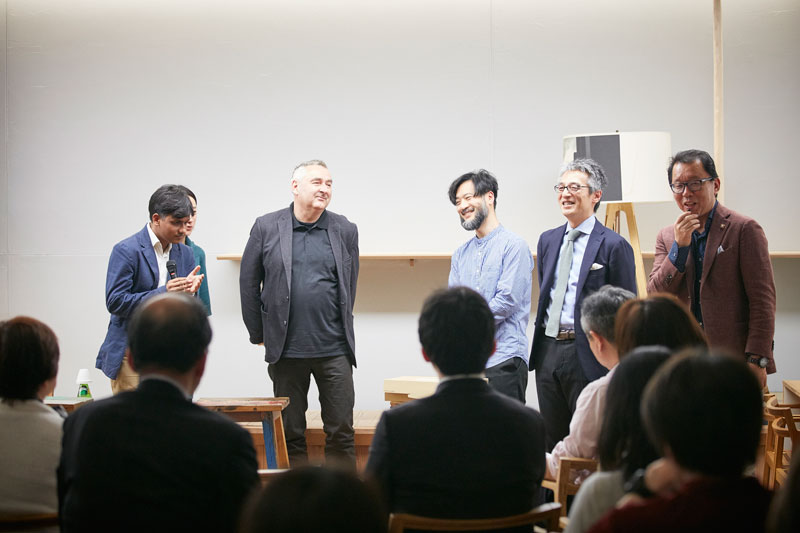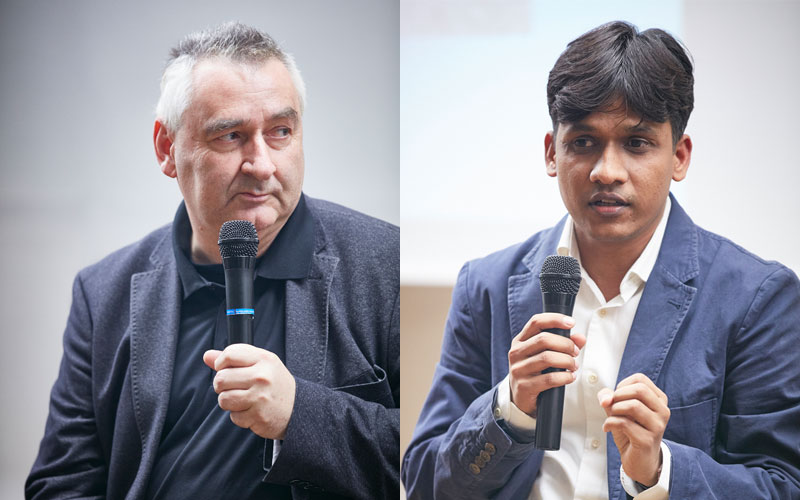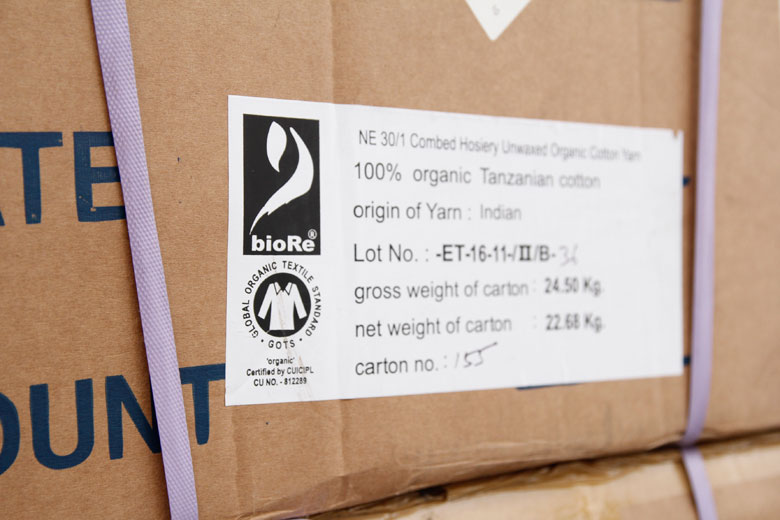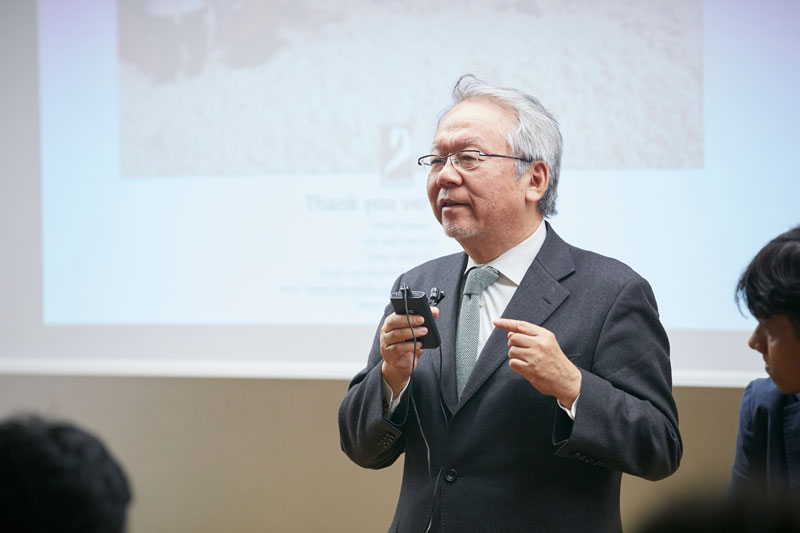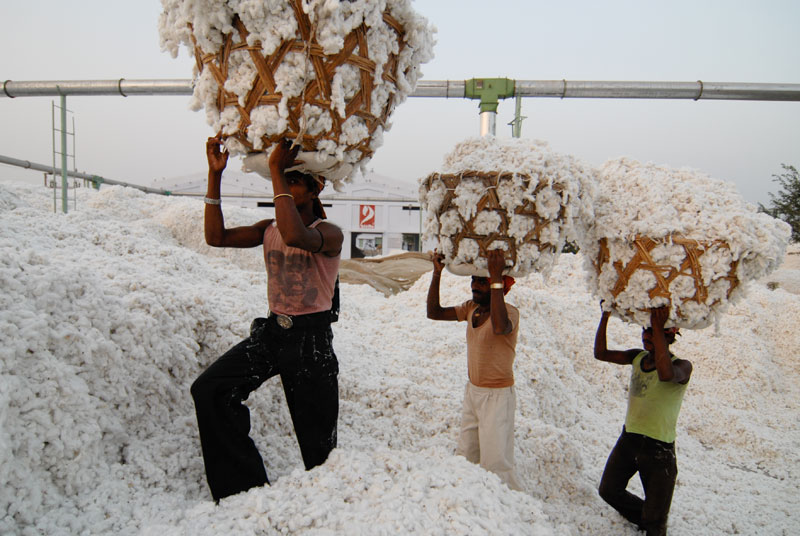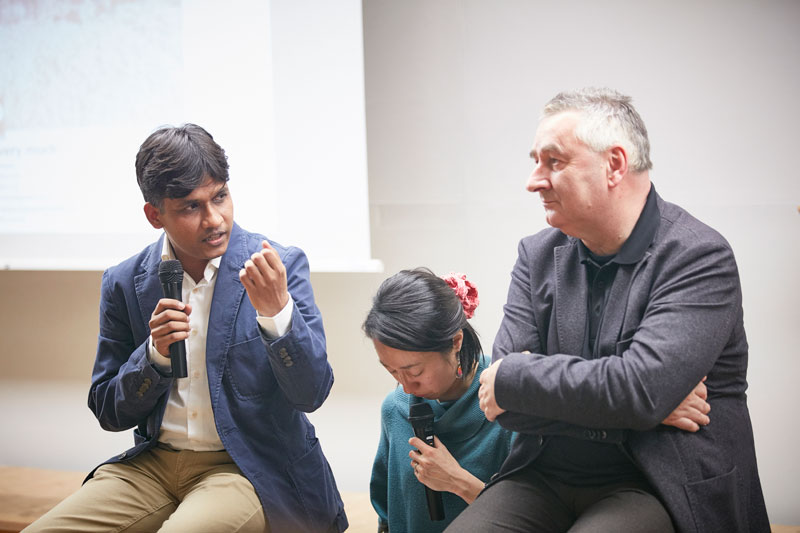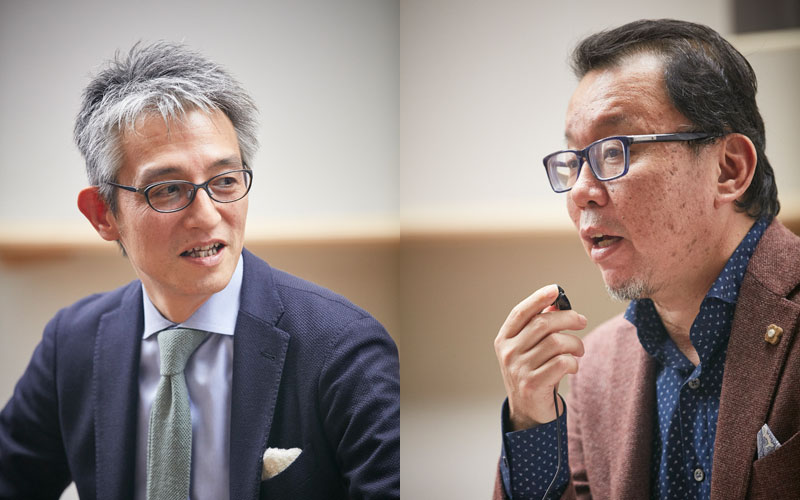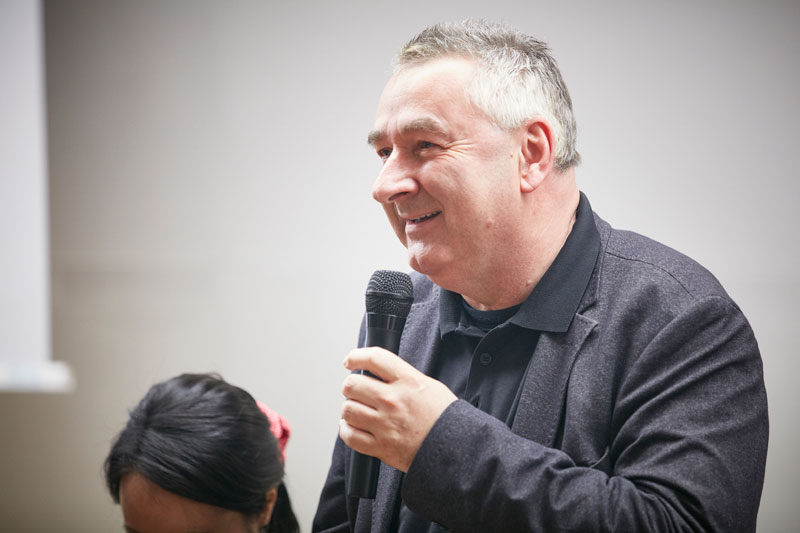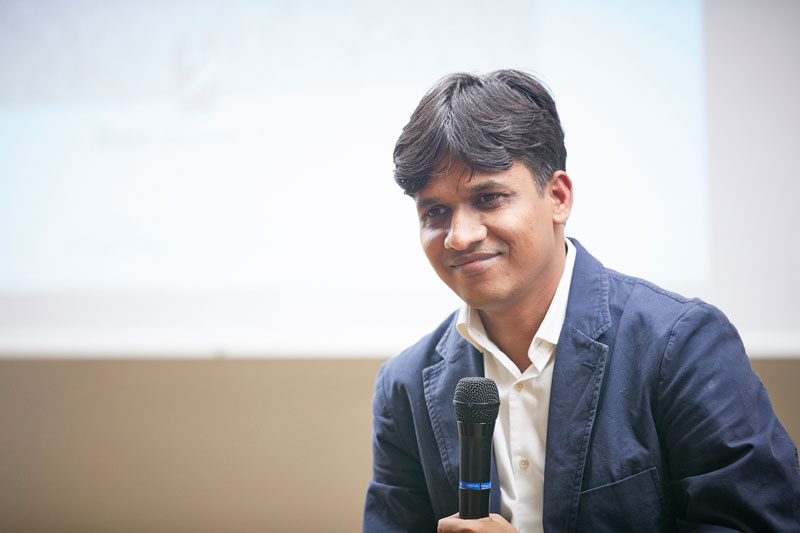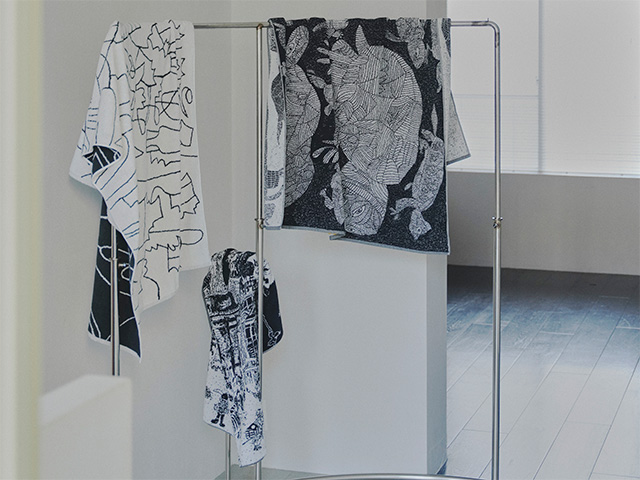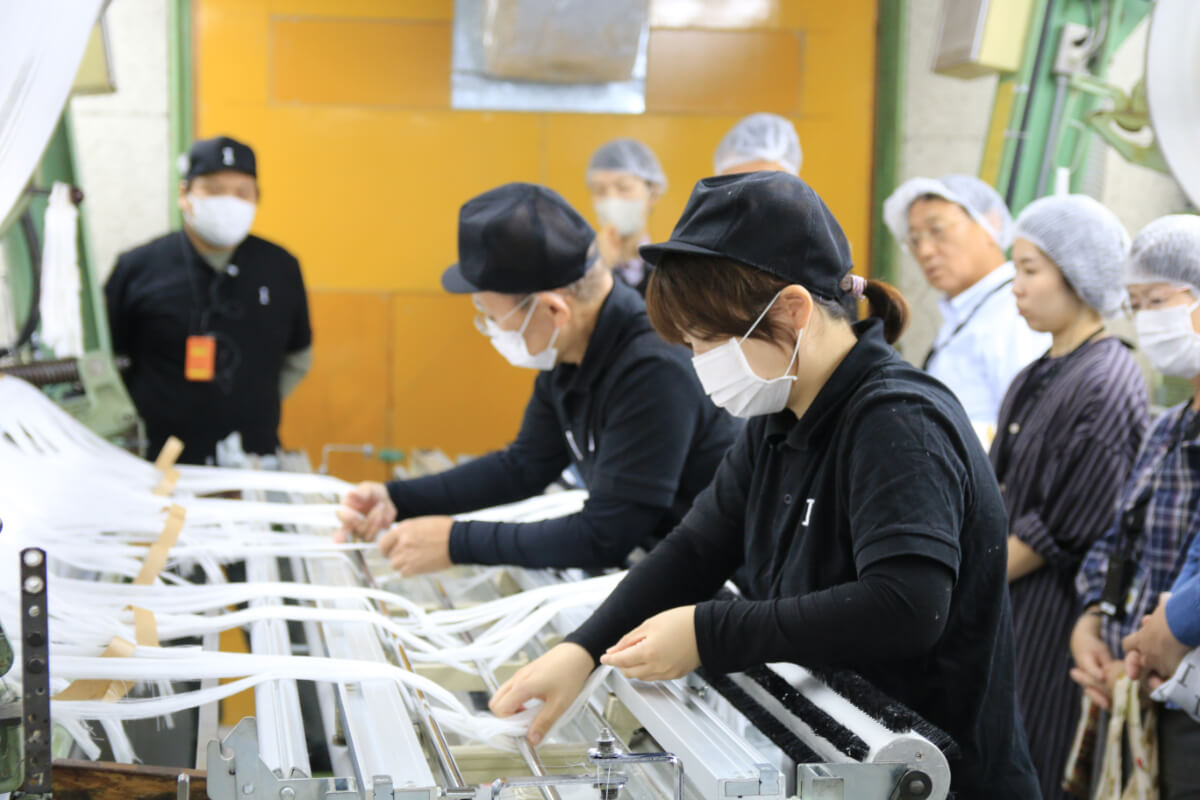- TOP
- News & Events
- News
- Learning from REMEI Switzerland, Challenges and Hopes for Social Business #3 President Abe asks Mr. Helmut and Mr. Vivek
Learning from REMEI Switzerland, Challenges and Hopes for Social Business #3 President Abe asks Mr. Helmut and Mr. Vivek
2017.04.21
Table of Contents
|
March 24, 2017 Mr. Helmut Halker, CEO, REMEI.AG About today’s speakersAbe: Before I move on to the questions, I have received many questions in advance. We will answer all of them, but due to time constraints, we cannot answer them here, so we will disclose all of them later on our website in the form of a Q&A session. Today, I have selected three questions from among those that you have asked, and I have picked questions that you would not normally be able to ask. I hope that by answering these questions, you will get a general idea of what we are talking about. Before I go any further, I would like to say that I think you may be confused by the confusion of words like REMEI, bioRe, Panoco, GMO, and so on. I would like to explain one more time.
Abe: First of all, Mr. Vivek is a producer of cotton. He is from India. bioRe project is the name of the project, which is a company flag fair trade or everything related to production. It is in India and Tanzania. The person in charge of Tanzania was supposed to be here today, but due to health reasons, he is not able to come, so we will be connecting via Skype in the second part. Mr. Helmut is the CEO of REMEI, a company that delivers yarns produced by the bioRe project to the world, and the key company connecting REMEI and the bioRe project is Panoco Trading. (We purchase yarns from Panoco. Basically, textiles are purchased from specialized trading companies, so Panoco and we are working together according to such business practices. Therefore, it was Panoco Trading who gave us the opportunity to meet REMEI. I hope that you will understand the relationship between the two companies one more time, and then you will be able to better understand my answer. Why did IKEUCHI ORGANIC choose REMEI?Abe: One more point: why we met REMEI and why we chose REMEI. What made you choose REMEI? We were asked the question, “Why did you choose REMEI? As I mentioned earlier, we were able to meet REMEI because of Panoco Trading, and since Ikeuchi, the representative of REMEI, is here today, I would like to ask you about the early days of our relationship before moving on to the next question. Ikeuchi (Representative, IKEUCHI ORGANIC): It was 1998 when we decided to start our own brand of organic cotton. We launched our first 100% organic cotton towel 18 years ago, and at that point, we received all of our organic cotton know-how from a Danish company called Novotex. Novotex is currently the first company in the world to make organic products. I happened to be drinking buddies with Novotex, and when Ikeuchi told me that he would teach me all the know-how if I would do organic, Novotex told me that they did not approve of certified organic products in Japan and that they were not organic. They said that only Japan calls such yarns organic. We decided that we would not call our products organic, and that as long as we used organic cotton, it had to be EU-standard organic cotton. Ikeuchi: At that time, we started with Peruvian cotton, then Peru was introduced to the U.S., then India, then Tanzania, and finally bioRe when we reached India. One day, I realized that we were using only REMEI yarns, and Panoko often suggested that I visit REMEI once in a while. I was often told by Panoco, “Why don’t you visit REMEI once in a while? But I know the current state of organic production. But knowing the current state of organic cotton, I was too scared to go to the field. I was afraid of mixing cotton with non-organic cotton. I was so worried that I would never go to the field, but one day I went to RMEI, and I was like, “Isn’t it so pure? I wondered why I got to know such pure people. I can understand if you buy after knowing them, but I was really surprised because I found out about the reality of RMEI after the cotton they use is 100%. We have to make the best towels because it is such good yarn. The day before yesterday, at a preliminary meeting, I asked why Europe uses such good yarn but makes such boring products. I asked why they couldn’t make more serious products. In fact, there are many manufacturers who are satisfied only with raw materials, because raw materials are only part of the product. We think that since we are supplied with such good raw materials, we want to make products that are thoroughly good. What are the annual maintenance costs for bioRe?Abe: Thank you very much, this is the big picture. I have three questions based on that premise, the first one. “How much does it cost per year to maintain the bioRe initiative? ” question. As was explained earlier, it’s fair trade, it’s dispatching medical vehicles, it’s infrastructure, it’s education, it’s all included. How much does it cost to maintain this? We did not have a clear idea of how much it costs to maintain the fair trade, so we asked you a question, so please answer it, Mr. Helmut.
If we talk in dollar terms, it costs us $20 million a year.Helmut : I was actually expecting that question, but of course we are making a lot of efforts to sustain that bioRe project. We pay a lot of money to do sustainable projects and to make better quality products. By doing so, we make sure that the farmers receive our services for free. So in order to create that structure, we create our own systems to manage our products, and we spend a lot of money to do a lot of testing, GMO or not GMO. We have about 8,000 GOTS certifications, and it costs money to maintain those certifications. In addition, we pay a 15% premium to farmers to purchase our products, which is actually very expensive. In US dollar terms, it costs $20 million per year (about 2.1 billion yen). More than half of this is paid to the farmers. Investments to improve farmers’ livelihoodsHelmut: If you produce 4,000 tons a year, for example, you have to purchase the product. The difficulty is that even if you can produce 4,000 tons, for example, if you use 2,000 tons to make a product, the remaining 2,000 tons will be too much. If this happens, it will become inventory, but it is very difficult to control because we cannot sell it at a low price and lower the price we pay the farmers. So, as you can see, it costs about 1.5 million dollars (about 160 million yen) every year for our project to be sustainable. We are spending a lot of money, but I have seen the farmers’ lives improve, and when I visit each of our projects, they are running smoothly, so I think it is worth the money. And I think that protecting the health of the farmers will lead to sustainable projects, and I think it will be important to continue to produce non-harmful products. Why doesn’t bioRe label its products?Abe: Thank you very much. We are running out of time, so we were going to do two questions, but we will do one more. When we set up our products for our suppliers and tell them that our ingredients are Fairtrade and not genetically engineered, they ask us to certify them. But there is no label. As a sales person, I am wondering why bioRe does not have a label on their products. I was wondering why bioRe doesn’t label their products. Vivek:There are several reasons for this. bioRe has our own social certification system. Consumers are aware of the Fairtrade level (International Fairtrade Certification label), but we want them to know that our products are more fair and organic than those certified as Fairtrade. For example, we send our yarns to Ikeuchi, and they are made into products. I would like to compare bioRe and fair trade products. As for the price, the price of Fairtrade certified products varies depending on the country. How we do it is that we introduce the price on that particular day, the day we make the purchase. Whereas Fairtrade products are purchased at a premium, no additional price added, we are buying them at 15% above the market price. We are doing more than the certification we put on the label.Vivek: What we are doing is producing cotton, and we are doing social projects and activities with the price that comes in, but even if there is a slight difference in the price from the sale of that cotton, we are maintaining the same scale of social activities. Another aspect is that we have a purchase guarantee, and the ones with the fair trade label don’t have that. We do carbon neutrality, but that is not the pattern. So we think it is not right for us to be concerned about the Fairtrade label. We do more than the certification we put on the label, so we have stopped pursuing the Fairtrade label and putting it on. Instead, we do have FLO (Fairtrade Labelling Organizations International, Fairtrade Labelling Organizations) come and audit us. So, please understand and explain to me that I have made a choice to stop focusing on labels and pursue doing more than that. If you really think that is what is going on, please come to India and see for yourself. With your eyes, not just your words. Thank you very much. Abe: Thank you very much. It was a gut-wrenching experience for me personally. Omuro: Please raise your hand if you would like to hear a question or two from the audience. We do not purchase GMOs for mixed products.Question from a visitor: I don’t know anything about towels, but I’m interested in fair trade and the buy-back guarantee. In short, do you not purchase GMOs that are mixed? Helmut: I spoke earlier about Vivek’s efforts. I mentioned that there is a test for this or that. That is because of the threat of mixing with GMOs and growing GMO crops. So we have set guidelines for a lot of farmers to not buy all GMO cotton. So the answer is, if we test the cotton and it is GMO cotton, we will not purchase it. Omuro: Thank you very much. I would like to end with a short message from both of you and President Abe. I would like to close with a short message from both of you and President Abe, who will respond to the messages from the two of you, in which you will tell us what we should do better for everyone and for IKEUCHI ORGANIC. Now, Mr. Helmut, please begin. Buy towels!Helmut : “Buy towels! (audience laughter) I think this is the best message. (audience laughed) I think this is the best message. (audience laughed) I think I found a better word. I just saw a product that Ikeuchi is making and I said buy towels. I heard that Mr. Ikeuchi is working on a project to recognize towels as wine and buy them. Towels are made from cotton, so they are made from agricultural products just like wine. It is easy to think of things we eat and drink as being made from agricultural products, but when it comes to towels, we tend to think of them in isolation. Cotton is an agricultural crop, and like grapes, it varies from year to year, with good, bad, or sour harvests. I hope that consumers and users of towels will have this kind of awareness, and enjoy the differences in the quality of the cotton from year to year, just as they do with wine. So I closed my eyes and touched the towels. Then I closed my eyes and touched the towels, and they were really different from 2017, 16, and 15 years. And I was so moved by the difference that I bought 20 towels for my family (laughs). That is my message to you. Sustain good things properly.Vivek: I have a message on behalf of farmers. I believe that to produce crops is to create the future of our people. It is what mothers do to their children. A mother does not give poison to her children, right? If a mother has poison in her body, it will be transferred to her children. Therefore, sustainability, or the proper continuation of good things, begins with the cycle of organic farming. However, the community of organic cotton producers and organic farmers is very small. It is much smaller than the farming methods that use artificial and chemical substances. Therefore, strong partnerships and bonds like the ones we have created with Mr. Panoco and Mr. Ikeuchi are very important. And this movement will continue to spread to consumers and retailers like you. Thank you very much. Society is connectedAbe: You are too kind to say this, so I’ll leave it at that for a moment. (Calling Cotton Nouveau designer Toshiki Sato, who was in attendance, to the podium) He came up with the idea for Cotton Nouveau, which surprised Mr. Helmut. Abe: We have been working on this initiative (Cotton Nouveau) since 2011, and we had a similar event with Mr. Helmut five years ago, but he was not here at that time. So today, on a Friday like this, we have come this far thanks to the support of our customers who have gathered here. We are here today not only because of REMEI and Panoco, but also because of our relationship with them. Society is all about connections, and I believe that our success depends on how well we can maintain these connections, so I hope that you will continue to look at us with a warm eye. Thank you very much. Related Link |


